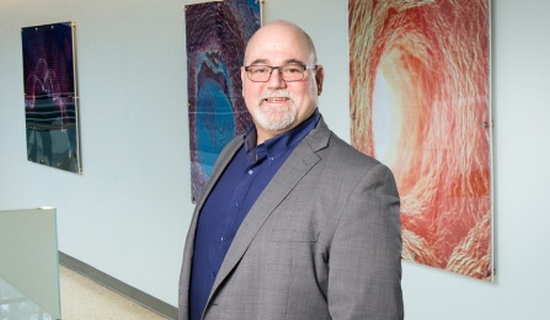Potential Alzheimer’s Link to Infectious Diseases Studied

Mark D. Hicar, MD, PhD, is using an IDSA Foundation grant to explore a potential link between infectious diseases and Alzheimer’s disease.
February 4, 2022—Mark D. Hicar, MD, PhD, associate professor of pediatrics in the Division of Infectious Diseases, has been awarded a $100,000 Microbial Pathogenesis in Alzheimer’s Disease Grant by the Infectious Diseases Society of America (IDSA) Foundation to explore a potential link between infectious diseases and Alzheimer’s disease.
Compare Antibodies From Alzheimer’s Patients
The project, titled “Use of Shared Antibody Responses Amongst Alzheimer’s Disease Patients to Reveal an Infectious Disease Etiology” will compare antibodies from Alzheimer’s patients to unaffected controls to identify shared antibodies that correlate with having Alzheimer’s disease.
Hicar and his research team will use a patient's serum and the reproduced antibodies of interest to then screen protein libraries to identify a correlative infectious response.
“The grant will identify a panel of antibodies specific to Alzheimer’s and initial infectious targets to focus on for future studies,” Hicar says.
Link Largely Unexplored
“We are just realizing how interactions with the microbes around us not only cause acute infections, but can define broader health outcomes and contribute to chronic disease states,” Hicar says. “Recent high-impact studies strengthening the association with the virus Epstein-Barr and development of multiple sclerosis are an excellent example of how a past infection can lead to issues many years down the road. Although likely many factors contribute to developing Alzheimer’s disease, a certain infection may be a key driver in later development of this disorder.”
Evidence suggests Alzheimer’s disease may have a link to infectious diseases or a microbial mechanism, but limited funding in the field has left this potential link largely unexplored. Now in its fourth year, the IDSA Foundation’s Microbial Pathogenesis in Alzheimer’s Disease Grant has provided more than $1.7 million in total grant funding. Projects span the breadth of the microbial world and may focus on bacteria, fungi, parasites, viruses and microbial synergy, among other possibilities.
“Only recently, shared antibodies from different persons — what are termed public clonotypes — have been described,” Hicar says. “Exploring their targeting is an exciting cutting-edge tool that can be used for a variety of different disorders.”
“Words cannot express how appreciative we are for this opportunity. It is exciting to contribute to a field of such public importance, such as Alzheimer’s disease,” Hicar adds.
Collaborating With Szegeti
Hicar is collaborating with Kinga Szigeti, MD, PhD, associate professor of neurology and director of UB’s Alzheimer’s Disease and Memory Disorders Center, for research on the study.
“Our laboratory studies other post-infectious disorders, particularly Kawasaki disease. Being located in UB’s Clinical and Translational Research Center, we have exposure to ongoing research projects in a diverse array of fields,” Hicar says. “We share space with Dr. Szigeti’s laboratory, and the idea to meld our interests occurred to me when I first heard about this opportunity over a year ago.”
“This grant allows Dr. Hicar and Dr. Szigeti to do groundbreaking research on this debilitating disease that impacts millions of individuals and their families and caregivers worldwide,” says Allison Brashear, MD, UB’s vice president for health sciences and dean of the Jacobs School of Medicine and Biomedical Sciences. “The collaboration between departments and laboratories is a key attribute of what research at the Jacobs School is all about.”
Funding for the grant is supported through a partnership with the Alzheimer’s Germ Quest and The Benter Foundation.
###
Contact
Ellen Goldbaum (she, hers)
Senior Medical Editor
University at Buffalo
Office of University Communications
330 Crofts Hall, Buffalo NY 14260
Phone: 716-771-9255
Fax: 716-645-3765
http://www.buffalo.edu/news
twitter: @goldbaumkolin
Source: https://medicine.buffalo.edu/news_and_events/news/2022/02/hicar-alzheimer-link-14270.html
"Reproduced with permission - "University at Buffalo"
University at Buffalo
For more HIV and AIDS News visit...
Positively Positive - Living with HIV/AIDS:
HIV/AIDS News |